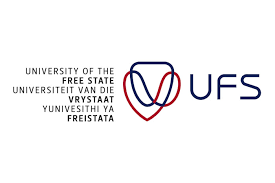University of the Free State: Research positions universities as powerful sites for achieving human development
The Higher Education and Human Development (HEHD) research group under the leadership of Prof Melanie Walker has grown to become a pocket of academic excellence and innovation at the UFS. “The group’s research positions universities (if ‘reimagined’) as potentially powerful sites for achieving human development by challenging the status quo and entrenched interests and inequalities,” Prof Walker notes.
HEHD researchers draw substantially on the capability approach, which offers a contribution to higher education in South Africa, primarily because it derives from a normative framework that places human flourishing as its primary goal, chiming with the country’s transformation goals.
Prof Walker is an internationally acclaimed researcher and academic and one of three A-rated National Research Foundation (NRF) scholars at the UFS. In 2021, she was elected as the first president of the international Human Development and Capability Association (HDCA) from the Global South. Back then, Prof Walker said the UFS already had a strong research presence within the HDCA, and her group was known for its work in African higher education. The HDCA brings together academics who generate ideas and research on human development.
The research group, which was founded by Prof Walker, is an embodiment of the quality and of the impact elements of the institutional narrative of the UFS. The HEHD is now happily based in the Centre for Development Support within the UFS Faculty of Economic and Management Sciences.
Top-tier research outputs from HEHD
The outputs of the HEHD research group have a far-reaching impact, given the nature of its national and international affiliated researchers, students, and collaborators. Members of the group have published 19 peer-reviewed books since 2013, and since 2016, the HEHD has graduated 20 PhDs whose research focuses on diverse aspects of higher education and capabilities across the sub- Saharan region. A range of international examiners in the USA, the UK and Europe attest to the quality of the HEHD’s doctoral graduates.
“I am immensely proud of the quality of the research and collective ethos of our graduate students and our researchers and, as importantly, the substantive focus on human development and social justice in and through higher education in Africa,” Prof Walker says. “As Professor Tristan McCowan and others have noted, this group is quite unique internationally,” she continues.
Projects and research collaborations
The numerous institutional and national and international research collaborations are also testament to the interdisciplinarity of Prof Walker’s academic approach. Various recent and current projects attest to this, for example, the recently completed Miratho project on inclusive higher education learning outcomes for low-income rural youth with Birmingham and Nottingham.
A further current example is the project under the Transforming Education for Sustainable Futures (TESF) with Bristol and Rhodes led by Dr Mikateko Mathebula, and a new edited book underway with Alejandra Boni and Diana Velasco (Spain) on higher education and reparative futures.
Furthermore, national collaborations such as the project with colleagues in the Centre for Development Support at the UFS and the University of Pretoria, which will be investigating the sustainable (ecologically and socially), developmental South African university and justice facing university futures from a variety of stakeholder
perspectives.
This research project is informed by the 17 Sustainable Development Goals, because achieving them cannot be done without the contributions of higher education institutions.
It is thus evident that under the leadership of Prof Walker, the HEHD research group is now established as one of the finest research groups at the UFS and contributes actively to the research and academic excellence at the university.

